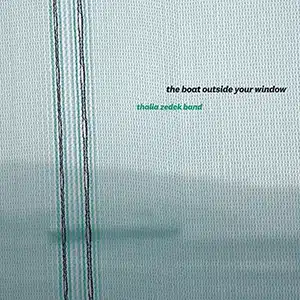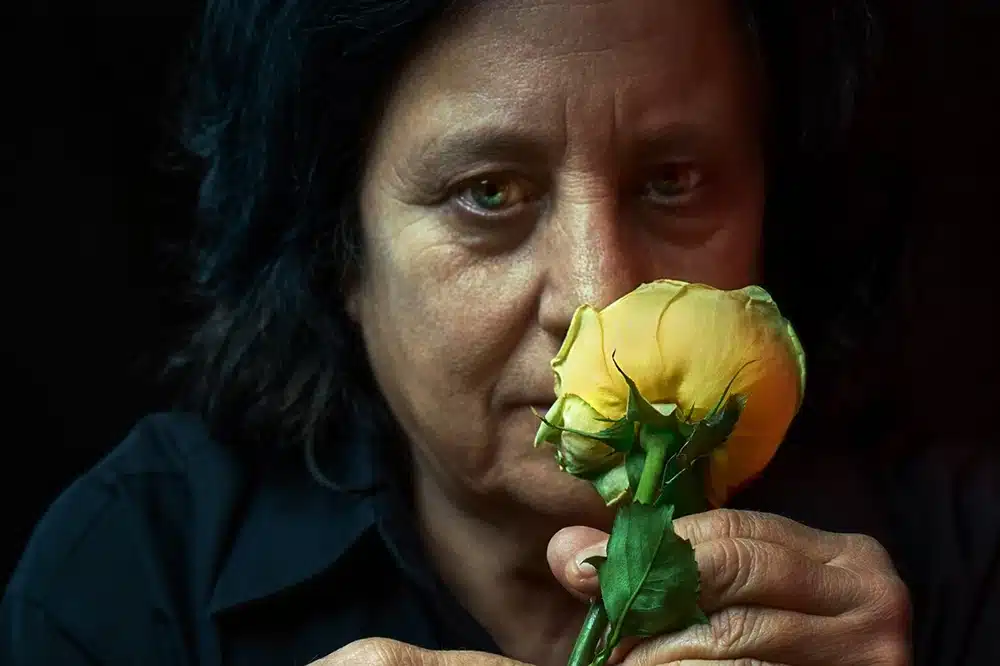
Thalia Zedek stays on the tipping point throughout this album, never resolving the tension, but constantly plunging into the heart of it with fearless verve.
 The Boat Outside Your Window Thalia Zedek Band Thrill Jockey 23 May 2025
The Boat Outside Your Window Thalia Zedek Band Thrill Jockey 23 May 2025
Guitarist Thalia Zedek’s music often turns a corner. Sometimes she’s shifting sounds, moving through variations on a singular vision while adding new complexities to her noisy indie rock. Sometimes she’s writing as if the end is near (politically or emotionally), only to find a new way through. With The Boat Outside Your Window, she continues to travel on an edge, refining her band’s sound in an unexpected way while sharpening her ever-growing songwriting skills.
The musical change on this album, about a quarter century into her solo career, is notable: she has added pedal steel guitar, played by Karen Sarkisian. At its most straightforward, the instrument lends the group something approaching an experimental alt-country sound. At other times, Sarkisian’s effects turn the pedal steel into something else, creating strange atmospherics that envelope Zedek‘s more traditional (in her oeuvre) structures. With bassist Winston Braman and drummer Gavin McCarthy (also from Karate) returning, the Thalia Zedek Band maintain a consistency to their core sound that allows for adventurous flexibility.

There’s a lyrical edge from the start. On “Tsunami”, Zedek explains that we’re “Holding on, fighting like a drowning man” (later we’ll be “drinking like a drowning man”). The plural pronouns in the opening half of the song matter. Zedek is not overtly political here, but the use of “we” and “us” suggests a communal problem. As the second half shifts to “I” and “you”, the song becomes more immediately personal before she sings, “And this time the kids are not alright,” referencing the Who to point to an imminent broader collapse.
The Boat Outside Your Window by Thalia Zedek Band
It’s key, though, that she is (and we are) “holding on.” The record primarily focuses on breakdowns. “Aliyah” discusses cultural disarray in an era where we can’t even agree on facts. For Zedek, “It is over, no encores anymore,” and the pedal steel responds to her guitar lines as a lament. It’s the album at its bleakest, but the band don’t stay in despair.
A few songs later, “Disarm” begins with an accessible alt-rock guitar hook, and Zedek starts to find her way through. “Aliyah” described the end of communication, but on “Disarm”, Thalia Zedek sings, “I can hear you now, I can hear you now.” This sort of tension develops the record’s force, an honest reckoning with doom that won’t quite settle, the person as insistent as the music.
In “Boat”, Zedek ends the song by waving to a person on a ship at sea, but it’s unclear if she’s waving hello or goodbye. She’s “the ghost of your desire”, developing a sense of loss and departure, but the song ends as if the boat’s arriving with someone friendly on board. The group know that everything is loss, but can’t quite give in to it, even among so many songs about letting go. The guitar solo in “Dissolves” brings a brightness (further developed by the pedal steel) that makes love sent “from another hiding place” somehow transcendental.”
The record closes with “Under Weather”, an urgent song about an existential crisis. Zedek sings, “Give me one reason that we should believe in eternity / Give me one reason that we should believe in anything.” On the surface, the finish points to a final resignation, despite the earlier efforts to rise above the waves, even in a tsunami.
The drive of the music, though, says something else: these questions could only be raised by someone who still believes they can be answered positively. Zedek stays on tipping point throughout the album, never resolving the tension, but always making sure to blast into the heart of it with fearless verve.


